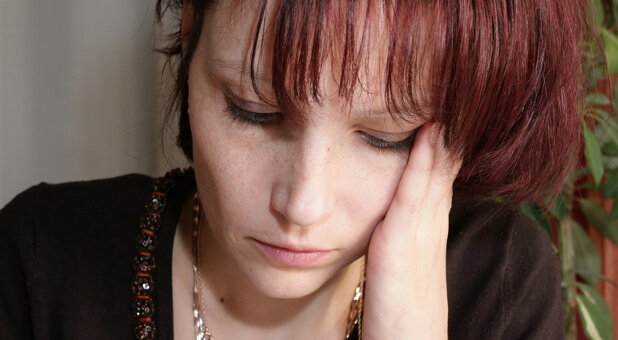This is a hard post to write because it’s a big issue, it’s something I am constantly working on, an ongoing journey that changes along with the needs of my family. This is not a post about parenting kids with disabilities, or about parenting adopted kids who live with the trauma from their past, or even a post about parenting children with mental health issues. But it is a post about parenting in the trenches, whatever that means to you, because mainly this post is about you, the parent, and how you are dealing with the extra needs in your family.
Parenting kids with high needs affects everyone in the family. Whether it’s a child with a disability, with mental health issues or with trauma (or a combination of those), the reality is that at some point—and as hard as it is to admit—there might come a time when Mama needs help.
It is so easy to focus on what our children need, to allow a schedule to become dictated by their therapists, specialists or counselors. As parents we do everything we can to meet their needs, sometimes even at our own expense.
Now let me pause for a moment and acknowledge there are many special needs parents out there that do not feel they live with extra needs, or they feel their kids with disabilities are no different than their typical kids; this post is probably not for you. But this post is for all the parents out there who feel wrecked, who feel like they can barely go on, who wish that someone out there cared enough and had the courage to enter into their pain, those parents who have many times locked themselves in the bathroom and sobbed.
Parenting children with high needs can be so incredibly hard and painfully lonely.
My middle daughter not only has cerebral palsy, but she lives with the trauma from spending the first four years of her life in a Ukrainian orphanage. She is not the only one living with the trauma; it affects everyone in the family. She has mental health issues, along with the trauma. We have reactive attachment disorder (a “symptom” of trauma) and we have depression and anxiety that could be related to her disability, or her trauma, or both. And nothing has broken me more than parenting her, dealing with the behaviors, the manipulation, the survival that she lives with no matter how much we love her.
And it was just a few months ago when we finally came undone, when after weeks of challenging behaviors my daughter unbuckled herself and raged in our van, kicking at the door, shouting hate at us, hitting her head as hard as she could, all because we were going to take her to a party and she decided she did not want to go. And my youngest daughter cried silently in her car-seat, closing her eyes as tightly as she could, and my oldest broke down, “I feel like our family is falling apart!” And that statement was all it took for me to break down too, sobbing, and realizing I needed help, because I felt so broken. So very broken.
I was not living, I was merely surviving. I could not keep living like this, my family could not keep living like this.
Weekly calls to her pediatrician and weekly intervention did not seem enough. She wasn’t sleeping, so we were not sleeping either. And then one day as I talked to one of her therapists she said, “I see trauma symptoms in you, I was wondering if you would be open to doing neurofeedback too, this tension you are living with is not helping you or your daughter.” Just the day before I had told my husband I felt like I had PTSD and perhaps I needed to see a counselor. That call confirmed the fact that I needed help.
So I want to tell you, my fellow parent who feels wrecked, it is OK to ask for help.












